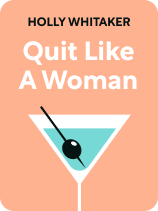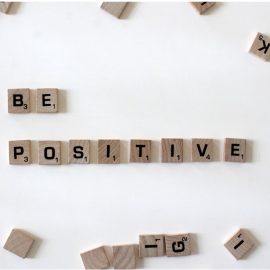

This article is an excerpt from the Shortform book guide to "Quit Like a Woman" by Holly Whitaker. Shortform has the world's best summaries and analyses of books you should be reading.
Like this article? Sign up for a free trial here.
What is the role of shaming in addiction? Why does alcoholic shame make the situation worse?
While alcoholism isn’t a disease people should want to have, it doesn’t help to shame those who are affected. In Quit Like a Woman, Holly Whitaker claims that shaming alcoholics only makes things worse.
Here’s why alcoholic shame does more damage than good, according to Whitaker.
Alcoholism Is a Shameful Disease You Either Have or Don’t
Whitaker believes that we’re societally conditioned to view alcoholism as a terrible problem to avoid at all cost. As examples of this perspective, most people use alcoholic shame to push the idea that alcoholics shouldn’t be employed, and many consider the word synonymous with more pejorative terms, like “drunk,” “lush,” or “addict.”
(Shortform note: Perhaps in part because alcoholism is seen as such a heinous affliction, many alcoholics try to hide their drinking from others. They might do this by lying about what they’ve been doing, hiding alcohol in odd places, and drinking secretly before a drinking event to obscure their heightened tolerance for alcohol. Interestingly, people with alcohol problems lie more often to their doctors than to friends and family about their drinking, which seems to indicate they fear an official diagnosis more than the judgment of loved ones.)
Whitaker claims that we also view alcoholism as a binary state: You’re either a full-blown alcoholic, or you don’t have a problem at all.
(Shortform note: While it may be true that we conventionally think of alcoholism as a binary, the National Institute on Alcohol Abuse and Alcoholism does consider alcohol use disorder to be a spectrum. The institute describes the disorder as being mild to severe.)
Viewing Alcoholism as Shameful Makes People Desperate to Avoid That Label
Our collective view of alcoholism leads to bad consequences: Whitaker believes that because the label “alcoholic” carries so many negative connotations, people go to great lengths to persuade themselves they don’t have a drinking problem when in reality, they do. For instance, someone might convince themselves that because they only drink on weekends, they can’t be alcoholics, even though their weekend drinking always involves binging.
(Shortform note: There are many specific ways people persuade themselves they don’t have a drinking problem. One of these is through minimization, in which you downplay the seriousness of your drinking: You might tell yourself your drinking isn’t as bad as other people’s. You might also have an optimism bias that lets you believe, optimistically, you won’t drink excessively the next time you go out—even though you always do.)
What’s more, people feel that as long as they don’t have symptoms of “true” alcohol addiction they can proceed to drink as they have been—even though their drinking may well be seriously harming them. And they can only determine what “true” alcohol addiction is by measuring themselves against other drinkers because there’s no standard diagnosis of alcoholism.
(Shortform note: Whitaker here discusses society’s perception of alcoholism and its symptoms. But as we saw earlier, alcohol use disorder is now measured on a spectrum, not as a binary state. And while it’s true that there isn’t an official diagnosis of alcoholism, there is an extensive set of symptoms you could check your behaviors against and a relatively rigorous proposed approach for health care providers to assess a patient. This includes asking about the patient’s drinking habits, performing a physical check, doing lab tests, and conducting a psychological evaluation. Thus, if you wanted to, it likely wouldn’t be as difficult as Whitaker proposes to have your relationship with alcohol professionally assessed.)

———End of Preview———
Like what you just read? Read the rest of the world's best book summary and analysis of Holly Whitaker's "Quit Like a Woman" at Shortform.
Here's what you'll find in our full Quit Like a Woman summary:
- Why society misunderstands what alcohol addiction is, what causes it, and how to treat it
- Why alcohol is always bad for you, even in moderation
- A feminine, holistic approach to recovery and sobriety






